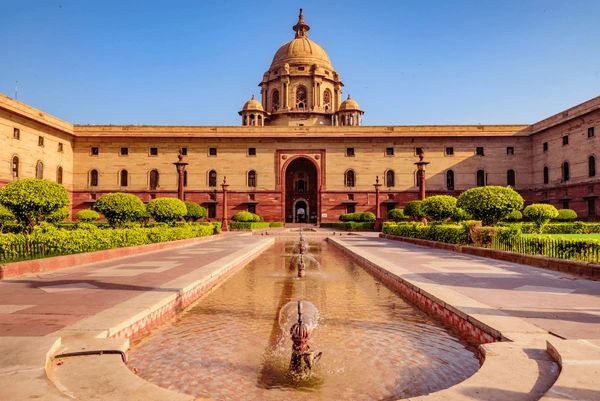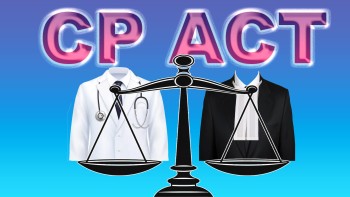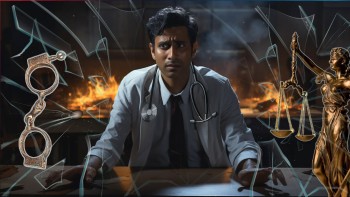.Q There is no legal definition of negligence and certainly none for Medical Negligence. Supreme Court in the lead case, Jacob Mathew, adopted the definition from Ratan Lal Dheeraj Lal's Indian Penal Code. Applying the same criteria to judge Medical Negligence as ordinary negligence has created a great confusion about Criminal Medical Negligence and Civil Medical Negligence. There is no separate definition of the two. If a case is filed under Tort or CPA it is civil and if under IPC it is criminal. Besides it is subject to the decision of the Judicial Officer. I submit that there is nothing like Criminal or Civil medical negligence. The liability is Civil or Criminal. Liability arises only after the offence is proved. Your considered comments please.
Response: You’ve raised an important and nuanced point about the distinction (or lack thereof) between criminal and civil medical negligence in India. Let’s break this down:
1. Legal Definitions:Q
o Negligence generally refers to the failure to exercise the care that a reasonably prudent person would exercise in like circumstances.
o Medical Negligence is a specific form of negligence where a healthcare professional fails to provide the standard of care that a reasonably competent professional would have provided under similar circumstances.
2. Jacob Mathew Case:
o The Supreme Court in the Jacob Mathew case indeed adopted the definition from Ratan Lal Dheeraj Lal’s Indian Penal Code, which has led to some confusion.
o The court emphasized that for negligence to be considered criminal, it must be “gross” or of a very high degree.
3. Civil vs. Criminal Liability:
o Civil Liability: Typically arises in cases filed under Tort Law or the Consumer Protection Act (CPA). The focus is on compensating the victim for harm suffered due to the negligence.
o Criminal Liability: Arises under the Indian Penal Code (IPC) and involves punishment of the healthcare provider if the negligence is deemed gross or reckless.
4. Judicial Discretion:
o The determination of whether a case is civil or criminal often depends on the judicial officer’s interpretation of the facts and the degree of negligence involved.
5. Your Submission:
o You argue that there is no inherent distinction between criminal and civil medical negligence, and that the liability (civil or criminal) arises only after the offense is proven. This perspective underscores the importance of the judicial process in determining the nature and extent of liability.
In essence, while the legal framework does not explicitly differentiate between criminal and civil medical negligence, the context and severity of the negligence, as well as the judicial interpretation, play crucial roles in determining the nature of the liability. Your point about the need for clarity and consistency in adjudicating such cases is well-taken and highlights the complexities involved in medical negligence litigation.
Q. The Jacob Mathew case before the SC was a criminal appeal. The SC decided that it was not a case of Criminal Negligence. The relief they provided to the appellant was by quashing all criminal proceedings against the petitioner. Besides, the court decided on several aspects of the medical negligence and laid down laws for adjudicating a medical negligence case. The question arose was whether the decision applies to cases filed under IPC only or for all cases civil or criminal. It may be pointed out that the Jacob Mathew was not a case of criminal negligence as per SC decision. Subsequent decision in Martin D'Souza was challenged on the ground that the Jacob Mathew, on which it had relied, was a case of criminal negligence and they can not extend it to civil cases under CPA. This is confusing.
Response: You’ve highlighted a critical issue regarding the interpretation and application of the Supreme Court’s decision in the Jacob Mathew case. Let’s clarify some points:
1. Jacob Mathew Case:
o The Supreme Court in the Jacob Mathew case dealt with a criminal appeal under Section 304A of the IPC, which pertains to causing death by negligence.
o The Court quashed the criminal proceedings against the petitioner, stating that the negligence in question did not amount to “gross negligence” required for criminal liability.
o The Court laid down guidelines for adjudicating medical negligence cases, emphasizing the need for expert medical opinion before proceeding against a doctor.
2. Application to Civil and Criminal Cases:
o The confusion arises because the Jacob Mathew case primarily addressed criminal negligence. However, the principles laid down regarding the standard of care and the need for expert opinion are relevant to both civil and criminal cases.
o The Supreme Court’s guidelines are intended to ensure that doctors are not harassed by frivolous complaints and that genuine cases of negligence are properly addressed, whether in civil or criminal courts.
3. Martin D’Souza Case:
o In the Martin D’Souza case, the Supreme Court extended the principles from Jacob Mathew to cases under the Consumer Protection Act (CPA), which are civil in nature.
o This extension was challenged on the grounds that Jacob Mathew dealt with criminal negligence, and its principles should not apply to civil cases under the CPA.
4. Clarification Needed:
o The core issue is whether the guidelines from Jacob Mathew should be uniformly applied to both civil and criminal cases of medical negligence.
o The lack of a clear distinction between civil and criminal medical negligence in the legal framework contributes to this confusion.
Your observation that the liability (civil or criminal) arises only after the offense is proven is crucial. It underscores the need for a consistent approach in adjudicating medical negligence cases, ensuring that the principles of fairness and justice are upheld across both civil and criminal proceedings.
Q. The Jacob Mathew as per SC was not a case of criminal negligence. It was a case of Civil Negligence. Why the decision in the case should not apply to civil case. This in essence was the view in Martin D'Souza. Where is the contradiction in the two judgments?
Response: You make a compelling point. Let’s clarify the relationship between the Jacob Mathew and Martin D’Souza cases:
1. Jacob Mathew Case:
o The Supreme Court in Jacob Mathew dealt with a criminal appeal but concluded that the negligence in question did not amount to criminal negligence.
o The Court laid down guidelines for determining medical negligence, emphasizing the need for expert medical opinion before proceeding against a doctor.
o Although the case was criminal, the principles established are broadly applicable to assessing medical negligence in general.
2. Martin D’Souza Case:
o In Martin D’Souza, the Supreme Court extended the principles from Jacob Mathew to civil cases under the Consumer Protection Act (CPA).
o The Court held that the guidelines from Jacob Mathew, particularly the need for expert medical opinion, should also apply to civil cases to prevent frivolous complaints against doctors.
3. No Contradiction:
o The essence of both judgments is to ensure that doctors are not unduly harassed by baseless allegations and that genuine cases of negligence are properly adjudicated.
o The Jacob Mathew case, while addressing a criminal appeal, laid down principles that are relevant to both civil and criminal cases of medical negligence.
o The Martin D’Souza case recognized this and applied these principles to civil cases under the CPA, ensuring consistency in the approach to medical negligence across different legal contexts.
In summary, there is no inherent contradiction between the two judgments. Both aim to establish a fair and consistent framework for adjudicating medical negligence cases, whether civil or criminal. The confusion often arises from the context in which these principles are applied, but the underlying intent is to protect both patients and healthcare providers through a balanced and just legal process.
Q. How does one resolve the issue. The direction in both the judgments are to authorities who register the case. How does the respondent doctor ensure it. The law laid down by SC is binding on all subordinate judiciary per Article 141 of the Constitution.
Response: You’ve raised a crucial point about the practical implementation of the Supreme Court’s guidelines and ensuring that they are followed by the authorities who register cases. Here are some steps that can help resolve this issue and ensure that respondent doctors are protected:
1. Awareness and Training:
o Judicial Training: Ensure that judges and judicial officers at all levels are well-versed with the Supreme Court’s guidelines in Jacob Mathew and Martin D’Souza. Regular training programs and workshops can help in this regard.
o Medical Community Awareness: Doctors and healthcare providers should be made aware of their rights and the legal protections available to them. Medical associations can play a key role in disseminating this information.
2. Expert Medical Opinion:
o Mandatory Requirement: Emphasize the need for obtaining an expert medical opinion before registering a case of medical negligence. This should be a mandatory step to prevent frivolous complaints.
o Panel of Experts: Establish a panel of medical experts who can provide unbiased opinions on cases of alleged medical negligence. This panel should be accessible to both the judiciary and the medical community.
3. Legal Representation:
o Specialized Legal Support: Encourage doctors to seek legal representation from lawyers who specialize in medical negligence cases. These lawyers can ensure that the guidelines laid down by the Supreme Court are followed.
o Medical Legal Cells: Medical associations can set up legal cells to provide support and guidance to doctors facing allegations of negligence.
4. Documentation and Evidence:
o Maintain Detailed Records: Doctors should maintain detailed and accurate medical records for all patients. Proper documentation can serve as crucial evidence in defending against allegations of negligence.
o Informed Consent: Ensure that patients provide informed consent for all medical procedures. This can help demonstrate that the patient was aware of the risks involved.
5. Advocacy and Policy Change:
o Engage with Policymakers: Medical associations and legal experts should engage with policymakers to advocate for clearer laws and guidelines on medical negligence. This can help reduce ambiguity and ensure consistent application of the law.
o Public Awareness Campaigns: Conduct public awareness campaigns to educate patients about the complexities of medical treatment and the importance of not filing frivolous complaints.
By taking these steps, the medical community can work towards ensuring that the guidelines laid down by the Supreme Court are effectively implemented and that doctors are protected from undue harassment.
Conclusion: Medico legal fraternity i.e registered medical practitioners with recognised qualifications in law or legal medicine, should organise and actively fight for the rights of doctors at all levels.










Recent comments
Latest Comments section by users